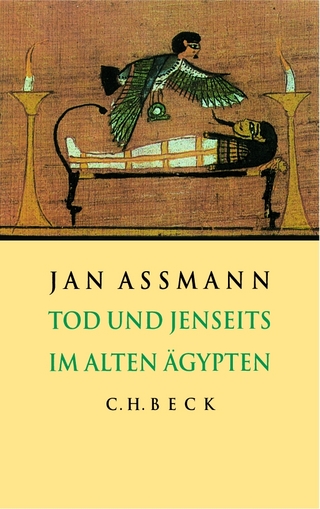
A Christian Samurai
The Trials of Baba Bunk?
Seiten
2016
The Catholic University of America Press (Verlag)
978-0-8132-2851-8 (ISBN)
The Catholic University of America Press (Verlag)
978-0-8132-2851-8 (ISBN)
- Titel z.Zt. nicht lieferbar
- Versandkostenfrei innerhalb Deutschlands
- Auch auf Rechnung
- Verfügbarkeit in der Filiale vor Ort prüfen
- Artikel merken
Although Japanese scholars have acclaimed Baba Bunk (1718–1759) as the most outstanding essayist and public speaker of the Tokugawa period, Western historians have long ignored him. Through a close critical analysis of Baba Bunk’s often humorous, but always biting, satirical essays a new picture of the hidden world of Christianity in eighteenth-century Japan emerges.
Although Japanese scholars have acclaimed Baba Bunk? (1718–1759) asthe most outstanding essayist and public speaker of the Tokugawa period (1603–1868), Western historians of Japan have long ignored him. This is because Bunk?’s very existence contradicts the historical narrative that they have constructed. According to that narrative, Christianity in Japan ceased to exist by 1640, except in small, scattered communities, centered mainly on the Nagasaki area.
Through a close critical analysis of Baba Bunk?’s often humorous,but always biting, satirical essays a new picture of the hidden world of Christianity in eighteenth-century Japan emerges—a picture that contradicts the generally-held belief among Western historians that the Catholic mission in Japan ended in failure. A Christian Samurai will surprise many readers when they discover that Christian moral teachings not only survived the long period of persecution but influenced Japanese society throughout the Tokugawa period.
Bunk?’s bold assertion that a representation of the Eucharist wouldbe more appropriate as a symbol for Japan than the coat of arms of the emperor or the insignia of the shogun would eventually lead to his arrest, trial, and execution. The legal proceedings against him reveal the government’s embarrassment at the failure of its attempts to eliminate Christianity.
This historical and literary study focuses on the personal as well as the public lives of many of the historical figures who were prominent in politics, philosophy, religion, and culture in the eighteenth century. The decadent state of Buddhism, the decline of Confucianism, and the popularity of the Yoshiwara “pleasure” quarters are some of the topics that illuminate this new history of early modern Japan and of the survival of Christianity.
The first complete English translation of Baba Bunk?’s Contemporary Edo: An Album of One Hundred Monsters is included as an appendix.
Although Japanese scholars have acclaimed Baba Bunk? (1718–1759) asthe most outstanding essayist and public speaker of the Tokugawa period (1603–1868), Western historians of Japan have long ignored him. This is because Bunk?’s very existence contradicts the historical narrative that they have constructed. According to that narrative, Christianity in Japan ceased to exist by 1640, except in small, scattered communities, centered mainly on the Nagasaki area.
Through a close critical analysis of Baba Bunk?’s often humorous,but always biting, satirical essays a new picture of the hidden world of Christianity in eighteenth-century Japan emerges—a picture that contradicts the generally-held belief among Western historians that the Catholic mission in Japan ended in failure. A Christian Samurai will surprise many readers when they discover that Christian moral teachings not only survived the long period of persecution but influenced Japanese society throughout the Tokugawa period.
Bunk?’s bold assertion that a representation of the Eucharist wouldbe more appropriate as a symbol for Japan than the coat of arms of the emperor or the insignia of the shogun would eventually lead to his arrest, trial, and execution. The legal proceedings against him reveal the government’s embarrassment at the failure of its attempts to eliminate Christianity.
This historical and literary study focuses on the personal as well as the public lives of many of the historical figures who were prominent in politics, philosophy, religion, and culture in the eighteenth century. The decadent state of Buddhism, the decline of Confucianism, and the popularity of the Yoshiwara “pleasure” quarters are some of the topics that illuminate this new history of early modern Japan and of the survival of Christianity.
The first complete English translation of Baba Bunk?’s Contemporary Edo: An Album of One Hundred Monsters is included as an appendix.
William J. Farge, SJ is associate professor of languages at Loyola University, New Orleans, USA.
| Erscheinungsdatum | 19.05.2016 |
|---|---|
| Vorwort | Kevin Doak |
| Verlagsort | Washington |
| Sprache | englisch |
| Maße | 152 x 229 mm |
| Gewicht | 531 g |
| Themenwelt | Sachbuch/Ratgeber ► Geschichte / Politik ► Allgemeines / Lexika |
| Geisteswissenschaften ► Geschichte ► Regional- / Ländergeschichte | |
| Geschichte ► Teilgebiete der Geschichte ► Kulturgeschichte | |
| Geschichte ► Teilgebiete der Geschichte ► Religionsgeschichte | |
| Religion / Theologie ► Christentum ► Kirchengeschichte | |
| Religion / Theologie ► Christentum ► Moraltheologie / Sozialethik | |
| ISBN-10 | 0-8132-2851-4 / 0813228514 |
| ISBN-13 | 978-0-8132-2851-8 / 9780813228518 |
| Zustand | Neuware |
| Haben Sie eine Frage zum Produkt? |
Mehr entdecken
aus dem Bereich
aus dem Bereich
der stille Abschied vom bäuerlichen Leben in Deutschland
Buch | Hardcover (2023)
C.H.Beck (Verlag)
23,00 €


